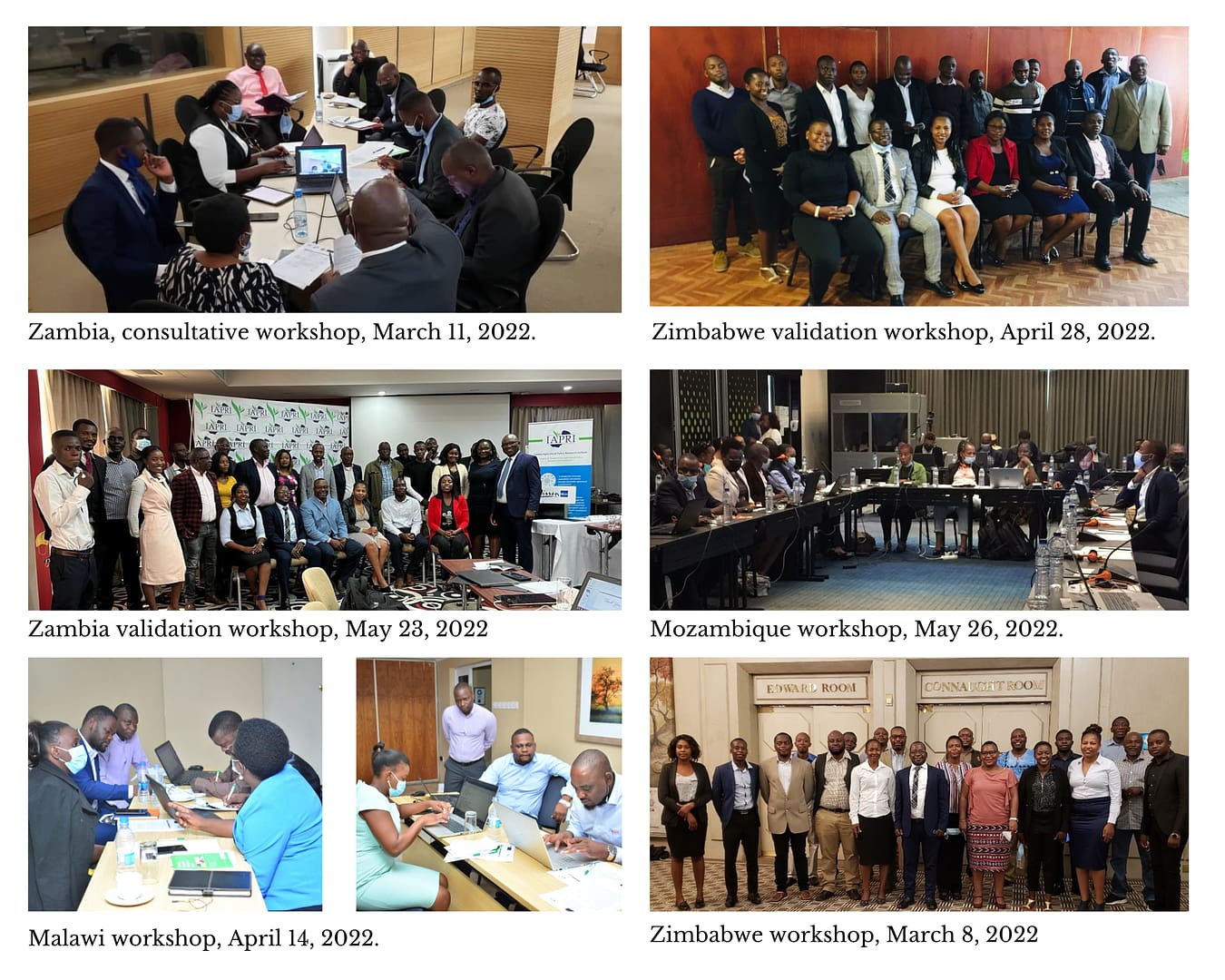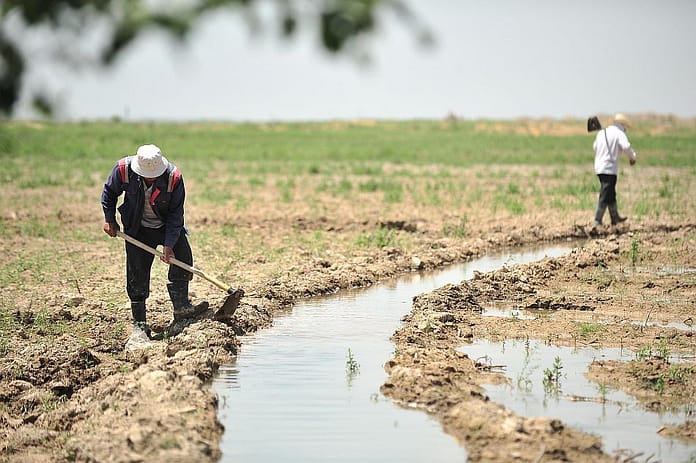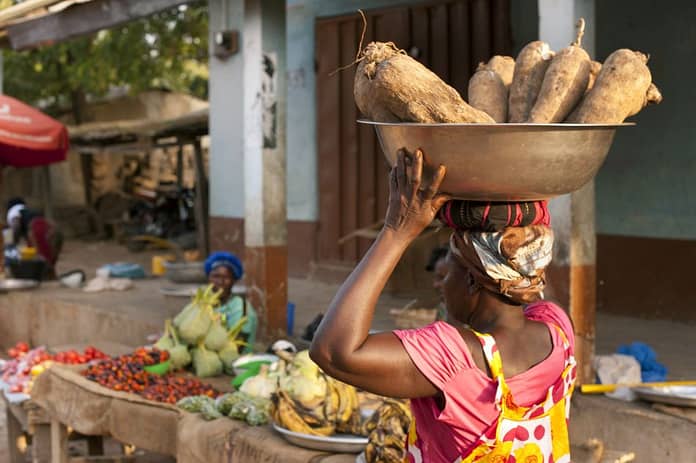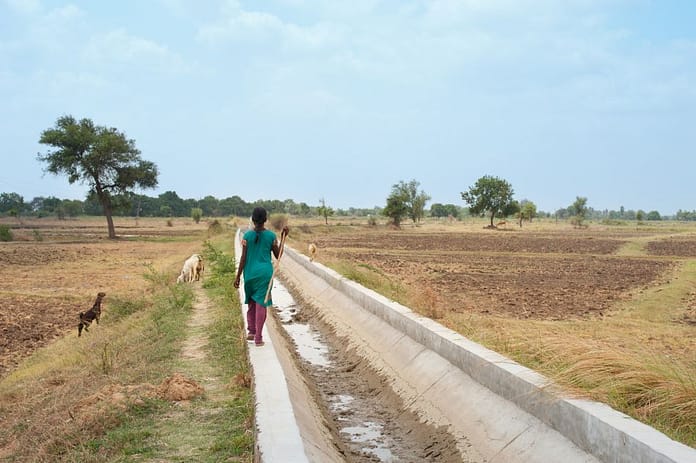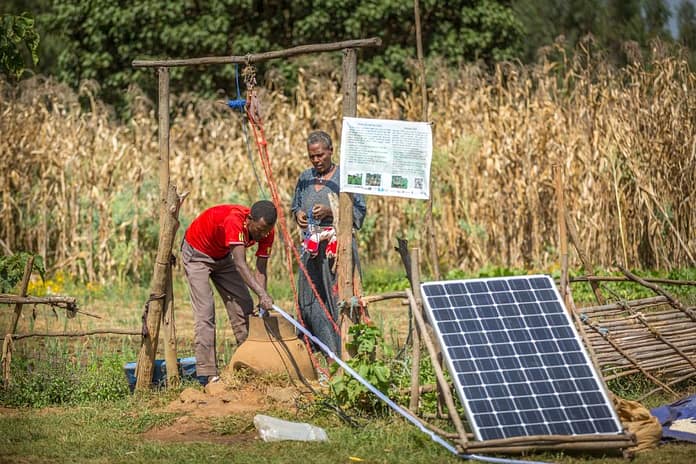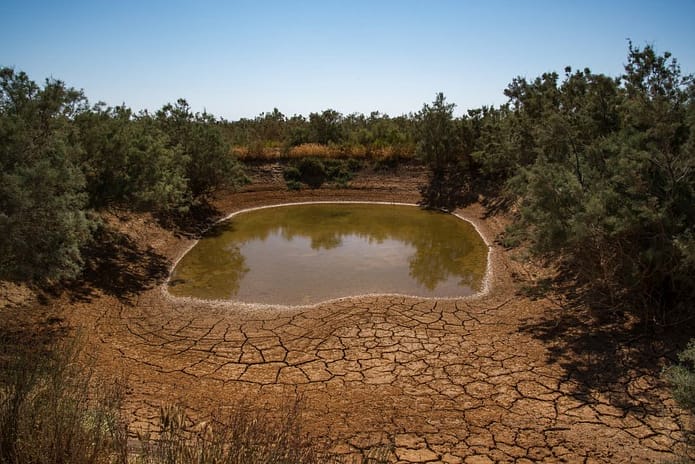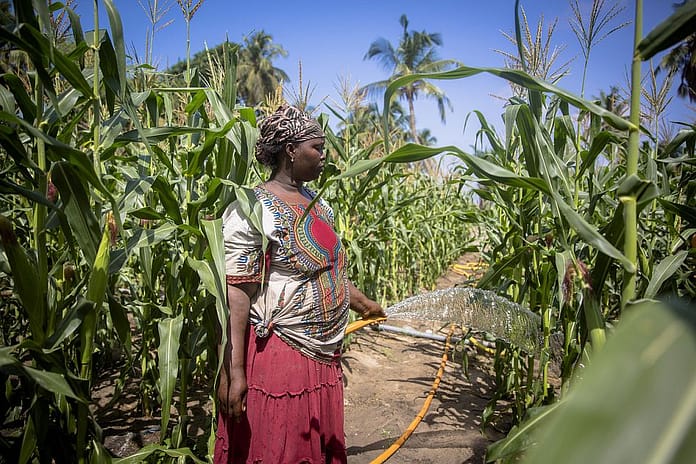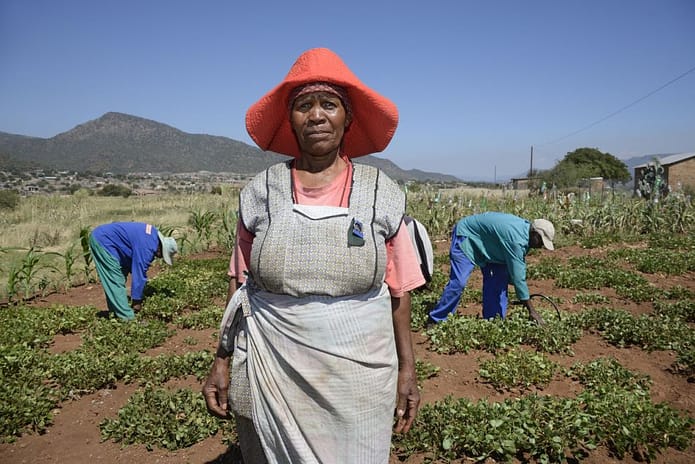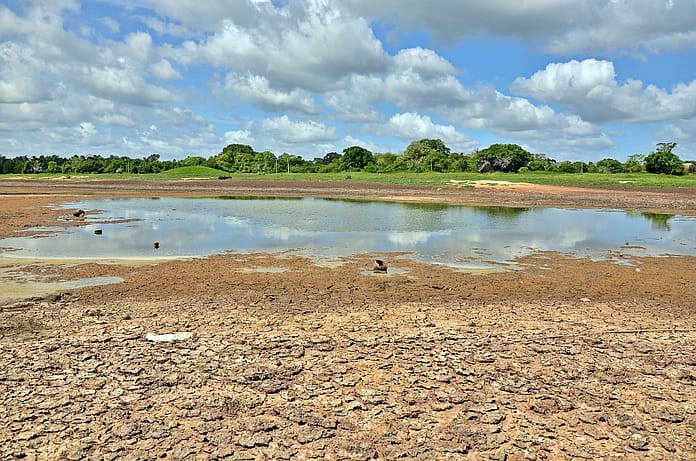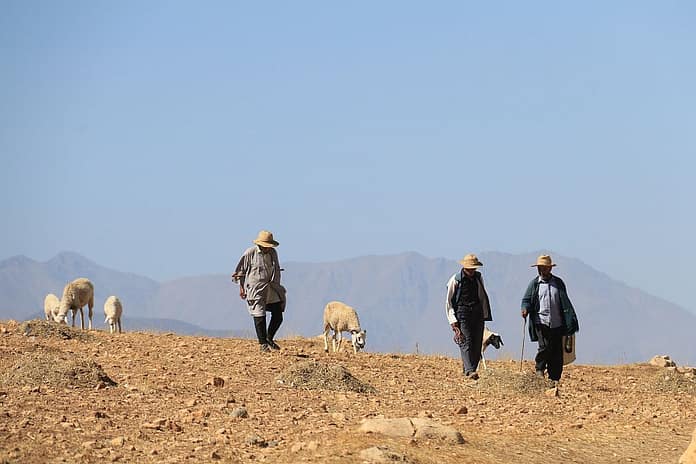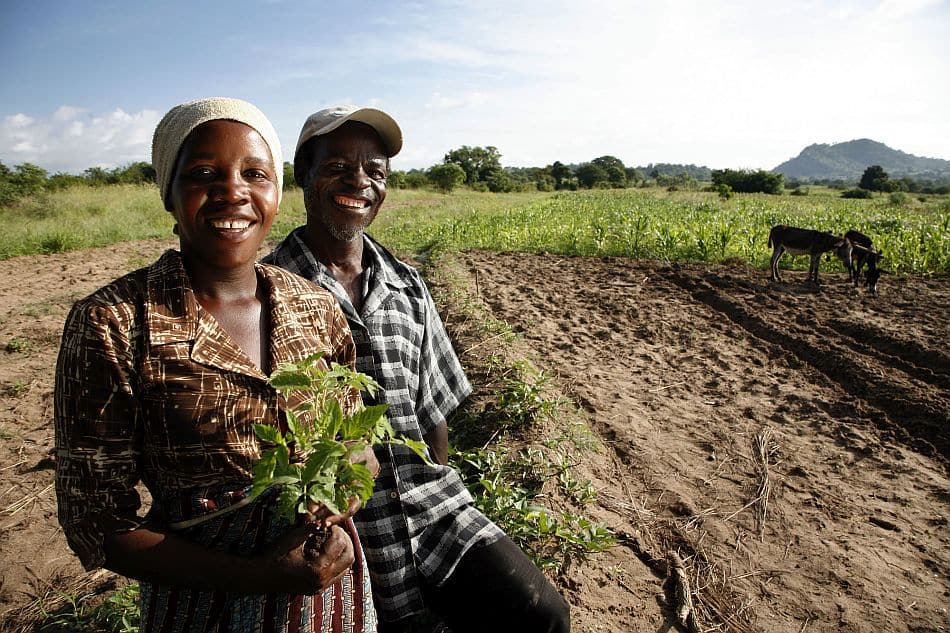
By:
Dr Greenwell Matchaya – Project Leader, Climate Smart Digital Technologies for Agriculture and Food Security project
Patience Mukuyu – Program Manager, CGIAR Initiative on Digital Innovation
Nilu Rajapakse – Communications Consultant, IWMI
The Zambezi River Basin (ZRB) in southern Africa connects eight riparian countries—Angola, Botswana, Malawi, Mozambique, Namibia, Tanzania, Zambia, and Zimbabwe. The population there mostly reside ruraly, and over 80 percent of agriculture is attributed to smallholder farmers facing the brunt of the climate crisis. Digital technologies can facilitate and enhance climate adaptation and resilience, but their potential in ZRB is unassessed and the use relatively low.
Under the Integrated Development and Adaptation to Climate Change (PIDACC) program for the Zambezi, the African Development Bank (AfDB), in partnership with the Global Center on Adaptation (GCA), the International Water Management Institute (IWMI) and partners — Centre for Agriculture and Food Policy (CAFP), Zimbabwe and Indaba Agricultural Policy Research Institute (IAPRI), Zambia, undertook feasibility studies to mainstream climate-smart digital agricultural technologies into climate adaptation programs within the ZRB. The CGIAR initiative on Digital Innovation will build on the outcomes of this work to enhance digital inclusivity by providing a digital technologies solutions and services suite which is accessible, useful, desirable, and also socially inclusive.
The role of digital innovation in mitigating climate risks
Agriculture, especially in the Global South, faces many climate related risks, including losses due to adverse and unpredictable weather. Digital innovations can mitigate these risks by providing services and technologies for planning, forecasting, reducing impact, and compensating losses. This study aimed to understand climate risks, climate adaptation efforts, challenges and constraints that deter digital technologies in climate adaptation, opportunities for scaling-up technologies, and provide recommendations scaling up digital technology adoption for climate adaptation.
Extensive literature reviews distilled key insights on climate risks, adaptation strategies, and available digital tools for climate adaptation. Stakeholder consultation workshops probed further, resulting in country-level assessments with vital information on digital innovation infrastructure, institutional capacity, policies, and on-going programs. Key partners, gaps, and opportunities to improve adaptation were also pinpointed. The results were compiled into a regional report and country reports for Zambia and Zimbabwe.
The country profiles mapped the state of digitization and extent of digital innovations in climate adaptation in agriculture, providing enabling factors of local adaptation and applications of digital innovations. Insights included contextual issues in digital innovation, penetration extent, cost structures, popular adaptation techniques among smallholder farmers, and institutional, policy, and human capital challenges towards digitization.
The following major findings were derived from the study:
- The extent and use of digital technologies in climate adaptation is still emerging and are varing across countries. Zambia, Zimbabwe, Malawi, and Mozambique, increasingly use smart phones for weather and extension services, Chameleon sensors are gaining traction in Botswana, for improving water use efficiency, and Zambia and Zimbabawe are deploying mobile weather stations. Mobile money applications are used for agricultural trade transactions across ZRB in varied extents.
- Adoption and scaling of digital technologies present challenges and constraints, including low availability, poor accessibility, low affordability, poor enabling environment, negative cultural and family norms, and poor utilization skills. Poor weather predictions are giving inaccurate planting times for farmers, undermining technology adaptation.
- Low skills and adult literacy (Eg. Mozambique), cyber-safety concerns, lack of electricity, poor infrastructure, and gender gaps constrain technology adoption and scaling, while undermining trust in digital solutions.
- Low digital penetration and high mobile data costs deter the adoption of data-enabled technologies. In rural areas, network signals are poor and mobile infrastructure needs strengthening. High mobile data costs are discouraging internet usage in Malawi and Zimbabwe.
- Poor macroeconomic, policy and regulatory environments constrain adoption, undermining technology availability and business predictability. The absence of digital technology concepts in national climate adaptation strategies undermine resource allocation for digital technology development.
- Cultural factors are widening the gender gap in technology adoption. Even women who can afford mobile internet are often deterred by cultural norms that enforce family or husband’s approval for social media use.
Increasing the impact and adoption of digital innovation
Seven key areas emerge for immediate intervention to improve the impact and adoption of digital innovations for climate adaptation.
Highlight the potential of digital innovations. More awareness is needed to inform small business owners and farmers across the agricultural value chain on the potential of technology to transform their agri-businesses and agricultural productivity.
Cost-effective technologies. Reducing technology procurement costs through faster and cheaper mobile money services, lower internet and mobile charges, and engaging and incentivizing the private sector to penetrate remote areas would boost adoption.
Inclusive business models. Gender-sensitive business models can promote technology use, addressing the gender gap, prevalant in rural areas, particularly in mobile phone ownership.
Responsive policies. Improving the policy and regulatory environment can boost digital adaptation. A regional framework on digitization with a stringent cyber security regulatory framework is imperative. National digitalization policies are needed for Angola, Botswana, Namibia, Tanzania, and Zimbabwe. Harmonizing legislation where necessary will prevent contradictions and uncertainties for investors.
Investment in sustainable energy. Energy is a prerequisite for scaling digital technologies and investing in alternative energy sources (Eg. Solar power) is vital. Expanding telecommunication infrastructures with a regional focus will enhance internet and mobile network coverage in rural areas and strengthen early warning systems and information flows across the region.
Strengthening advisory services. Information centers strategically located in remote, disadvantaged areas — with digital extension and advisory tools — can serve as one-stop shops and significantly improve digital technology access and transcend language barriers.
Design for inclusion. Human-centric design should be the norm when designing digital technology to promote diversity. Establishing parameters for inclusion in the design blueprint would gear technology to seamlessly embrace the multi-dimenstional nature of people’s lives and identities.
The climate risks confronting the Zambezi River Basin countries are overwhelming. But identifying and addressing the challenges and opportunities for digital innovations in agriculture will help harness and scale up climate-smart technologies for smallholder farmers and small businesses, building up their resilience and boosting food security in the Zambezi region and beyond. This regional study informs climate adaptation intervention designed by AfDB, GCA and policy makers of several riparian countries (Mozambique, Zambia ) and the Zambezi Watercourse Commission. It is expected that working with the AfDB and GCA, Malawi and Zimbabwe will also utilize the results of this study to develop their own adaptation interventions for climate change.
This project is a key activity under the CGIAR – Digital Innovation Initiative which researches pathways to accelerate the transformation towards sustainable and inclusive agrifood systems by generating research-based evidence and innovative digital solutions. We thank all funders who supported this research through their contributions to CGIAR Trust Fund.
Contacts:
Dr Greenwell Matchaya (G.Matchaya@cgiar.org), for the Potential of Digital Technologies to Accelerate Climate Adaptation in the Zambezi River Basin project
Patience Mukuyu (P.Mukuyu@cgiar.org), for the CGIAR Initiative on Digital Innovation
We acknowledge the significant technical contributions by the staff at Global Center on Adaptation (GCA), led by Dr Oluyede Ajayi and Dr Fleur Wouterse and the African Development Bank (AfDB), led by Olukemi Afun-Ogidan.
This project was carried out as a key activity under the Africa Adaptation Acceleration Program (AAAP).


